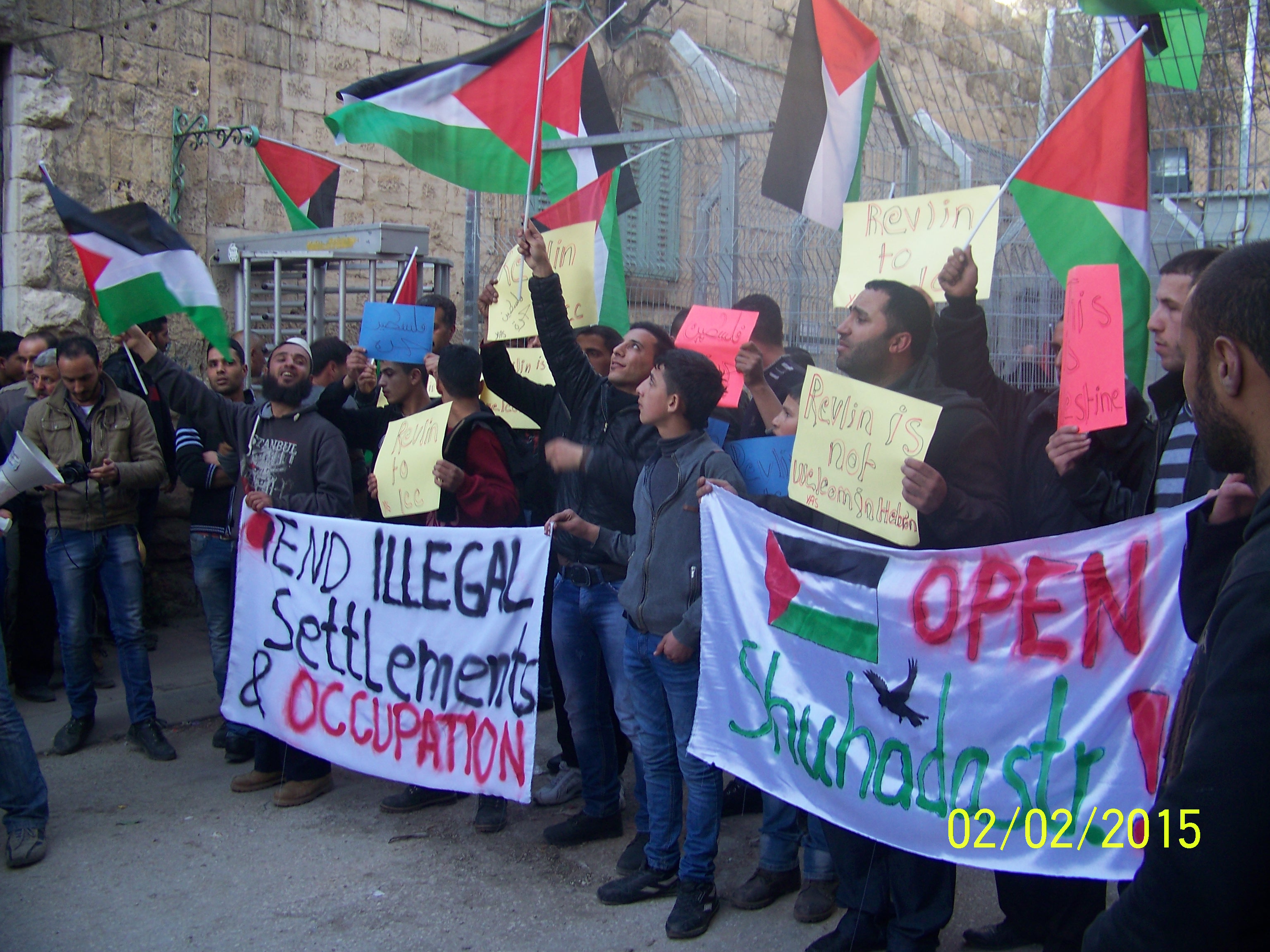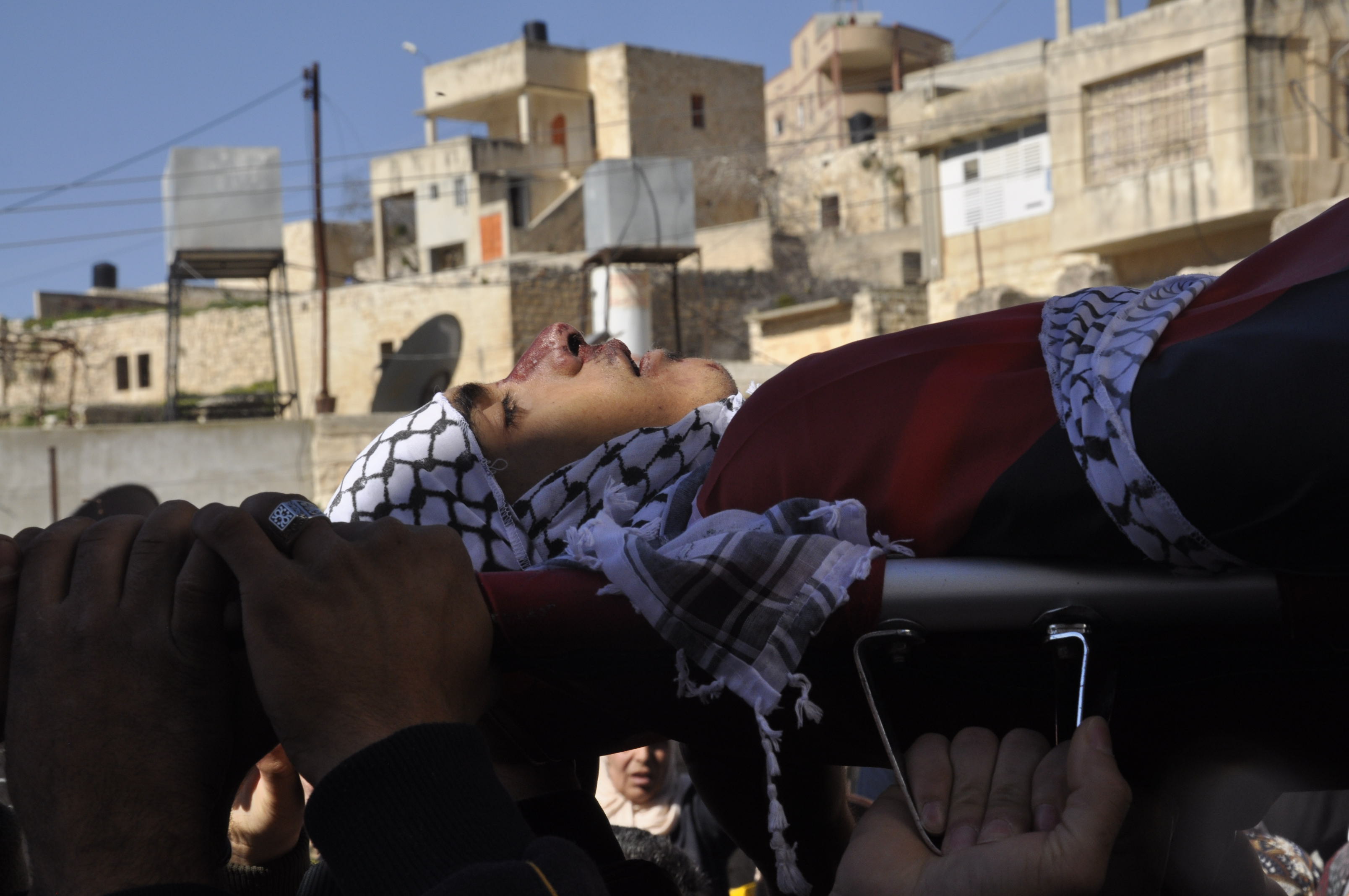-
Demonstrators face military violence for protesting Israeli President Rivlin’s visit
5th February 2015 | International Solidarity Movement, Khalil Team | Hebron, Occupied Palestine On Monday, February 2nd, Palestinian demonstrators faced military violence at the hands of Israeli forces in occupied Al-Khalil (Hebron). Protesters gathered in Bab Al-Zawiye, on the H1 (Palestinian administered) side of Shuhada checkpoint, to denounce Israeli president Reuven Rivlin’s visit to the illegal Israeli settlement of […]
-
Demolitions in Qusra
3rd February 2015 | International Solidarity Movement, Nablus Team | Qusra, Occupied Palestine In the early morning of February 2nd, 2015, Israeli forces demolished a two-room structure, a water well, and damaged a stone wall in Qusra, Occupied West Bank. All of the destroyed property was on land belonging to brothers Anwar and Akram Tayseer. Israeli […]
-
19-year-old shot and killed by Israeli forces in Burin
3rd February 2015 | International Solidarity Movement, Nablus Team | Burin, Occupied Palestine On the evening of January 31, 2015, Israeli soldiers shot and killed Ahmad Ibrahim Najar, a 19-year-old Palestinian from the village of Burin (Nablus region). In the attack, Israeli forces also injured 18-year-old Mohammed Raed Asaos. Mohammed and a third man, Abdulrahman […]
Action Alert An Nabi Saleh Apartheid Wall Arrests BDS Bethlehem Bil'in Cast Lead Demonstration Denial of Entry Ethnic Cleansing Farmers Gaza Global Actions Hebron House Demolition International law Israeli Army Jerusalem Live Ammunition Nablus Ni'lin Prisoner Ramallah Rubber-coated steel bullets Settlement Settlers Settler violence Tear-Gas Canister Video



